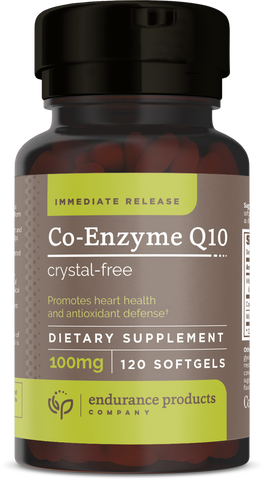If you take a statin drug to help lower your blood cholesterol, it’s a good bet you are also lowering your blood CoQ10 level, according to a new study. What’s more, the researchers discovered new information about how different statin regimens affect CoQ10 stores. The results may surprise you.
The most robust study to date
For this meta-analysis,1 the researchers searched the scientific literature using key databases (PubMed, EMBASE, and the Cochrane Library) from inception to January 2018 with no language restrictions.
They included only randomized, controlled clinical trials – the gold standard of evidence – that compared a statin drug to a dummy pill (placebo) or compared different types of statins (lipophilic vs. hydrophilic forms).
Atorvastatin, simvastatin and lovastatin are common lipophilic forms, while rosuvastatin, pravastatin and fluvastatin are common hydrophilic forms.
A total of 12 trials with 1,776 participants ranging from two to 26 weeks met the strict inclusion criteria for analysis.
The expected (and surprising) study results
Results indicate that, compared to taking a placebo, taking a statin drug significantly reduced the blood level of CoQ10. In another post, we talked about a previous meta-analysis with fewer studies that reported similar results, so this finding was not unexpected.
The new study also compared the effects of different types of statins on CoQ10, and these results are surprising.
The researchers found both hydrophilic and lipophilic statins lowered blood CoQ10 levels in a similar manner. Likewise, both low-middle intensity and high intensity statin therapy has similar effects. Plus, no obvious differences were found between the lengths of therapies.
In other words, taking any type of statin significantly lowered the blood level of CoQ10 regardless of the formula, amount or duration of use.
How statins deplete CoQ10
Statins exert their cholesterol-lowering effect by reducing the activity of a liver enzyme called HMG-CoA reductase. In this way, statins lower the liver’s ability to produce cholesterol. Trouble is, your body uses the same biochemical pathway to produce CoQ10. So, by blocking this pathway, statins also impair the body’s natural ability to produce CoQ10.
The dual benefits of CoQ10
CoQ10 is required to stoke the energy-generating furnace (mitochondria) in every cell. Up to 95 percent of the energy in your body is generated this way. What’s more, a high level of CoQ10 is needed to meet the energy demands of your heart, muscle and other metabolically active tissues.
CoQ10 is also the body’s most abundant antioxidant, protecting cells against unstable free radicals. People exposed to cigarette smoke, smog and other environmental toxins, or who exercise intensely tend to generate an excess amount of free radicals, and that can damage cells.
Plus, CoQ10 production in the body naturally declines as we age.
The dual action of CoQ10 as cellular energizer and antioxidant makes it doubly important to ensure your body stores are at an optimal level, especially if you use a statin drug.
The bottom line
Statin drugs significantly reduce the blood level of CoQ10. If you take a statin, talk to your doctor about supplementing with a highly bioavailable form of CoQ10 such as Co-Enzyme Q10 Crystal-Free.*
References
1. Qu H, Meng YY, Chai H, et al. The effect of statin treatment on circulating coenzyme Q10 concentrations: an updated meta-analysis of randomized controlled trials. Eur J Med Res. 2018;23(1):57. PMID: 30414615.
* These statements have not been evaluated by the Food and Drug Administration. This product is not intended to diagnose, treat, cure or prevent any disease.

